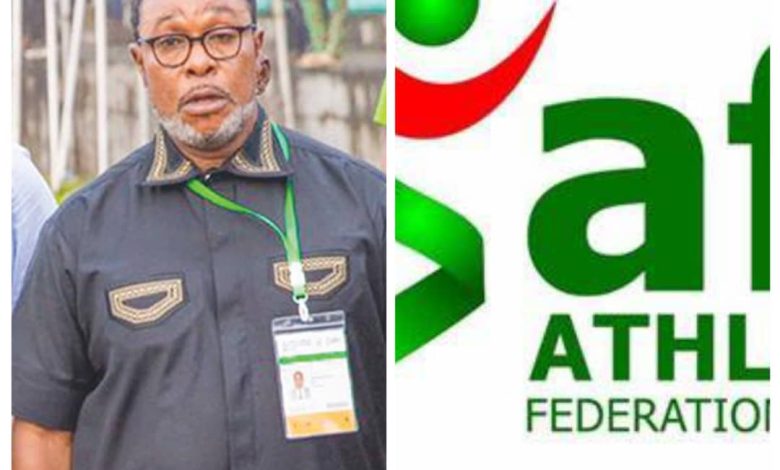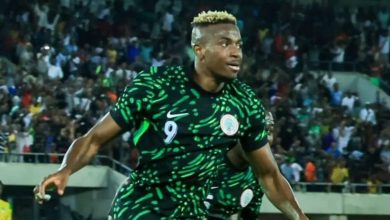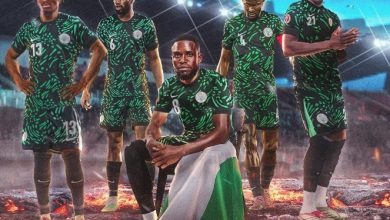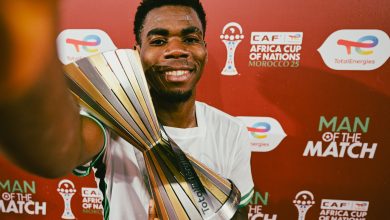Okowa Blames Funding, Critics Blame AFN Dysfunction

The Athletics Federation of Nigeria (AFN) finds itself at the center of a storm following a fiery press conference on Friday evening, where President Chief Tonobok Okowa lamented the lack of funding as a major impediment to athlete welfare and federation programs. However, critics say the federation’s dysfunction runs deeper than financial constraints.
Speaking after Day 1 of the Nigeria Athletics Championships at Yaba College of Technology, Okowa warned that more athletes could follow the path of Favour Ofili, who recently switched allegiance to Turkey, joining a list that includes Gloria Alozie, Francis Obikwelu, Salwa Eid Nasser, and Kemi Adekoya.
Yet, Okowa’s impassioned appeal was met with skepticism. Observers noted his failure to outline concrete steps the AFN has taken to attract sponsorship.
Instead, the federation’s recent history has been marred by allegations of mismanagement—including the controversial Premium Trust Bank sponsorship, where Okowa reportedly collected ₦40 million as a refund for a loan he claimed to have extended to the federation.
The AFN audit committee flagged the transaction, citing no formal agreement to justify the reimbursement.
To date, the federation has not publicly accounted for the ₦100 million annual sponsorship from Premium Trust Bank, raising concerns about transparency and governance.
Since Okowa assumed leadership, the AFN has failed to secure a single kit sponsorship from global brands like Nike, Adidas, or Puma—a move that would have provided not only financial support but also essential gear for athletes.
Instead, Nigerian athletes have been seen washing their kits between races, competing without proper shoes or bags, and lacking the professional image expected at international meets.
The Nigerian Track and Field Championships, once a showcase for elite talent and a magnet for corporate interest, has been criticized for its lack of discipline and structure. Athletes who skipped the trials have been selected to represent Nigeria, undermining the long-standing ‘no trials, no selection’ policy championed by past AFN administrations.
Notably, Seye Ogunlewe, who placed fourth at the 2024 trials, was overlooked in favor of absentees. Even when one of the selected athletes was injured, the AFN refused to reconsider, instead writing to the Sports Development Minister that Ogunlewe did not meet the qualification standard—despite evidence to the contrary.
In a stunning oversight, Favour Ofili, who met both AFN and World Athletics criteria, was not registered for her event at the Paris 2024 Olympics.
The federation’s credibility has further eroded following the flawed June 2025 board elections, now the subject of a legal challenge. Critics argue that without a complete overhaul of its governance structure, the AFN cannot attract meaningful corporate partnerships.
Nigeria boasts a roster of world-class talent, including Tobi Amusan, Ese Brume, Nathaniel Ezekiel, Samuel Ogazi, Tima Godbless, Ella Onojuvwevwo, Rosemary Chukwuma, and Chukwuebuka Enekwechi—athletes who should be easy to market. Yet, the federation’s inefficiency and lack of professionalism continue to drive them away.




